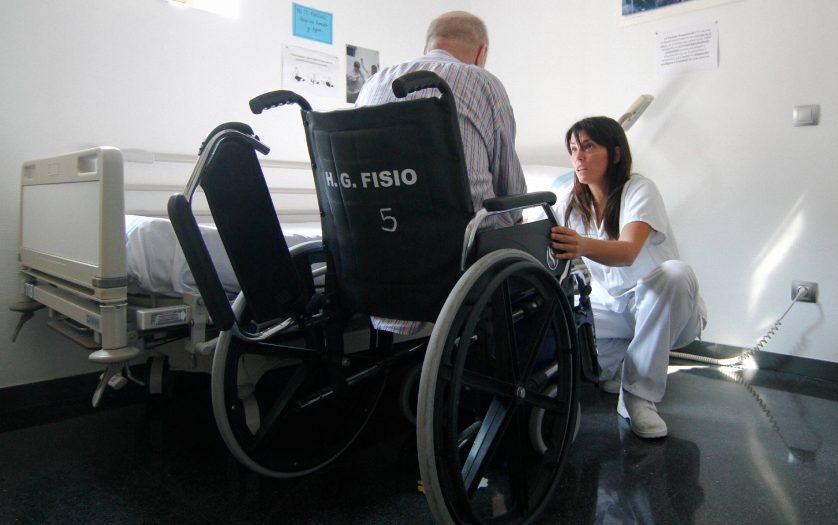
Several recommendations were presented by an Ontario Committee focussed on establishing new accessibility health care standards in hospitals.
The Health Care Standards Development Committee (HCSDC), comprised of persons with disabilities, disability organizations and sector experts, was established in 2017 by the Minister Responsible for Accessibility, under the Accessibility for Ontarians with Disabilities Act (AODA).
The Committee’s enormous task was to bring forth recommendations to, at least reduce, but preferably eliminate, the numerous barriers faced by persons with disabilities when obtaining health care.
Sandi Bell, Chair of the HCSDC, wrote in the report’s introduction, “In society, detrimental myths, stereotypes and stigmas abound regarding persons with disabilities, which is replicated in their hospital and health care experiences, often resulting in poorer health care outcomes. Frequently, barriers faced by persons with disabilities have nothing to do with their disability but rather with erroneous assumptions being made about their health care needs and/or their intellect and capacity in decision-making. We believe this report and recommendations will help “deMYTHicize” persons with disabilities and decrease the discrimination faced by persons with disabilities seeking health care services.”
As seen on the Government of Ontario official website, 23 distinct recommendations were released in June 2021, including, but not limited to:
- allowing for complete engagement and collaboration with persons with disabilities in planning, policy development and quality improvement within hospitals, guaranteeing accessibility is consistently contemplated as part of early, proactive hospital decision-making;
- ensuring that the accessibility accommodation needs of persons with disabilities are identified, recorded, shared and acted upon at each point of contact, including passage to community care;
- ensuring persons with disabilities who require assistance for effective communication are provided appropriate communication aids and authorized support persons, as well as written health care information in simplified language and alternate formats (for example, large print, digital formats, Braille);
- providing persons with disabilities with appropriate, authorized personal support services, including allowing patients to use their own existing services;
- and, requiring regulated health professionals to demonstrate knowledge of Ontario’s accessibility laws in order to be authorized to practice and integrating this into annual college membership renewal requirements.
The COVID-19 pandemic revealed deficiencies in Ontario’s entire health care system, not just in hospitals. Accessibility health care standards are needed in all settings including nursing homes, outpatient rehabilitation centres, community health centers, freestanding diagnostic imaging and laboratory facilities, medical clinics and agencies providing support services. The HCSDC proposed that the recommendations included in their report should be applied to all health care facilities.
Some concerns that arose from the pandemic included access to clear and understandable information about available services and the need for an accessibility and disability viewpoint as part of the development of medical triage protocols.
In preparation for future state-of-emergency situations, the Committee made specific recommendations in relation to persons with disabilities:
- develop precise guidance, to be provided as a resource for municipalities and the public when mandatory masking orders are in effect, taking into consideration that mandatory masking orders typically require the use of non-medical face coverings or masks, which may hinder communicationfor persons with speech and hearing disabilities;
- provide guidance to relevant testing centers on accessible queueing protocols and ensuring staff are trained on accessible customer service, which may include prioritizing persons with disabilities in the line when appropriate or providing the option of a mobile testing service to an individual’s home;
- and, ensure that Ontario’s clinical triage protocol is consistent with accessibility and human rights expectations.
Health care is an essential service that Ontarians rely and depend on every day. Eliminating barriers in this area will help make sure every resident can enjoy the independence and dignity they deserve when receiving health care services.








